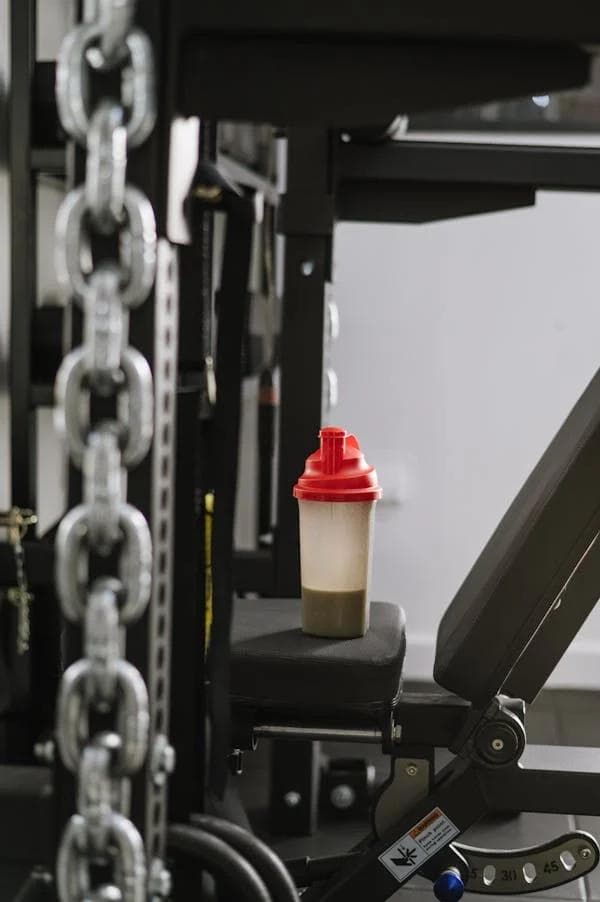If you're regularly working out, you probably already know that protein is your best friend. It's essential for building muscle and helping your body recover after exercise (1). But when should you consume your protein? Is it better to have protein before or after a workout? Read on to see how to make protein work best for you.
Should you drink a protein shake before or after workouts?
Protein shakes, which are typically made from whey protein because it's convenient, fast-absorbing, and effective, are a popular way to get your protein fix. They're easy to consume, portable, and often really tasty. But is it better to drink protein shakes before or after workouts?
Let's 'whey' up the benefits!
Protein shakes before a workout
If you drink a protein shake before your workout, it can help prepare your body for exercise and muscle building:
Protein shakes after a workout
Having a protein shake following a workout helps your body bounce back quickly in several ways:
You can therefore choose to do both, and if you're regularly working out, this can be beneficial, especially if you are trying to build muscle. Don't forget your carbs too, as these are just as important for energy pre-workout, and for replenishing glycogen stores post-workout.
If you prefer to avoid dairy products, then there are numerous plant based options available. Read more about this in our article,How much protein do I need to build muscle?
Should you eat high-protein meals before or after a workout?
The body doesn't store amino acids in the same way it does carbohydrates and fatty acids. As we've seen in the previous section, consuming protein before a workout gives your body time to release amino acids to support your muscles during exercise, and post-workout this can help to kickstart the muscle recovery process. (8) The difference between a healthy meal and a protein shake is that a meal can also provide other macronutrients, such as carbohydrates, which will offer energy before a workout, and help to replenish glycogen stores post-workout. A healthy meal would include aprotein source- meat, fish, eggs, or tofu - 2-3 portions ofvegetables, and some complex carbohydrates such as whole grains or pulses.(9) As well as protein, this type of meal will also contain vitamins and minerals, andfibre, all of which provide additional benefits to the body.
If you have specific fitness goals, you can time your meals to offer specific benefits:
Ultimately, there will be benefits to consuming protein both before or after a workout, but overall there's no hard or fast rule (10).
Does the anabolic window matter?
The "anabolic window" is believed to be the short 30-minute window after exercise when muscles are primed to absorb protein. Anabolic describes the process of building new cells and tissues, the opposite of catabolism, which is when these break down.
However, while nutrient timing can certainly influence muscle building, recovery, and repair, recent research suggests that the importance of the 30 minute anabolic window is overstated and that this window probably extends for several hours. As long as athletes consume sufficient protein and carbohydrates throughout the day, muscle protein synthesis and recovery can still be effectively supported. In other words, total daily nutrition intake is more crucial than the precise timing immediately after a workout.
The key takeaway is that you eat protein before or after a workout, as it's your total daily protein intake that matters more than the exact timing of consumption.
Should you increase your protein intake before or after exercise?
Should you boost your protein on workout days? As we've seen in previous sections, it's less about timing and more about ensuring you meet your total daily intake.
Consuming protein close to workouts may offer a slight advantage, especially during intense training phases, as it can enhance muscle protein synthesis and aid recovery. However, consistent protein intake distributed evenly across meals throughout the day is more effective for supporting training adaptations. Aim for at least 20-30 grams of high-quality protein per meal to optimise muscle health, regardless of whether it's a training day or rest day.(11,12)
Summary: should you have protein before or after a workout?
To wrap it up: there's no single "right" answer to the protein timing question. Both pre- and post-workout protein support muscle growth:
The most important part? Consistency. As long as you're getting enough protein throughout the day, you're setting yourself up for success.
Make sure you're eating enough protein to support your goals - order a Prep Kitchen subscription now.
If you enjoyed this article, read these other related articles on our blog:
How much protein do you need to build muscle?
What are the benefits of a high-protein diet?




